Aleksandr Sokurov is a Russian filmmaker who has gained international recognition for his distinct visual style and his exploration of philosophical and historical themes.
His films often have a dreamlike quality, with long, unbroken takes and a focus on atmosphere and mood. Here are a few of Sokurov’s films that are considered to be some of his best works:
“Russian Ark” (2002): This film, shot in a single unbroken take, follows an unnamed narrator as he explores the Hermitage Museum in St. Petersburg, Russia.
The film’s immersive quality, combined with its historical themes, makes for a mesmerizing experience.
“Mother and Son” (1997): This haunting and meditative film explores the relationship between a dying mother and her son.
Shot in muted colors and with a deliberate pacing, the film has a dreamlike quality that perfectly captures the emotional weight of its subject matter.
“Moloch” (1999): This film portrays Adolf Hitler’s private life in his mountain retreat.
The film is shot in a visually stunning and haunting style that explores the banality of evil and the psychological underpinnings of totalitarianism.
Best Aleksandr Sokurov Films
These films represent Sokurov’s diverse and compelling body of work and are excellent starting points for anyone interested in experiencing his unique and evocative filmmaking style.
1. Russian Ark (2002)
“Russian Ark” is a 2002 historical drama film directed by Aleksandr Sokurov.
It is known for its unique filmmaking technique of being shot in a single unbroken take, which makes the viewer feel like they are wandering through the corridors of the Hermitage Museum in St. Petersburg, Russia.
The film’s story follows an unnamed narrator, played by Sergei Dreiden, as he wanders through the museum, encountering historical figures and events along the way.
The film’s main thematic content is the exploration of Russia’s cultural heritage, as the narrator travels through different eras of Russian history and interacts with various historical figures, such as Catherine the Great, Peter the Great, and Nicholas II.
The film also touches on the theme of the ephemerality of art and culture, as many of the works of art depicted in the film were destroyed or lost over time.
“Russian Ark” is visually stunning, and the unbroken take creates a sense of immersion and intimacy with the viewer.
The film is a testament to Sokurov’s unique filmmaking style, which combines stunning visuals, philosophical themes, and a dreamlike atmosphere to create a truly immersive cinematic experience.
It is considered to be one of the director’s most impressive and memorable films.
No products found.
2. Faust (2011)
“Faust” is a 2011 Russian film directed by Alexander Sokurov. Here are some key characteristics of the film:
Dark and surreal atmosphere: The film has a distinctively dark and surreal atmosphere, created through a combination of eerie lighting, unsettling sound effects, and haunting music.
The imagery is often grotesque and dreamlike, adding to the film’s unsettling and otherworldly feel.
Philosophical and allegorical themes: “Faust” is a loose adaptation of the classic German legend of Faust, but it also explores broader philosophical and allegorical themes.
The film explores the nature of human desire and the pursuit of knowledge and power, and raises questions about the relationship between the individual and society.
Experimental cinematography: Sokurov is known for his experimental approach to filmmaking, and “Faust” is no exception.
The film features a mix of handheld and static shots, unconventional camera angles, and an impressionistic visual style that blurs the line between reality and fantasy.
Intense and symbolic performances: The performances in “Faust” are intense and often symbolic, with the actors embodying archetypes and larger-than-life characters.
The film’s central character, Faust, is portrayed as a tormented and flawed individual, and the supporting characters are similarly complex and enigmatic.
3. Mother and Son (1997)
“Mother and Son” is a Russian film directed by Aleksandr Sokurov and released in 1997. The film is a deeply poetic and meditative exploration of the relationship between a dying mother and her devoted son.
The film’s visual style is highly distinctive, with a dreamlike quality that emphasizes the characters’ emotional and psychological states.
The film takes place entirely within the confines of a small apartment, where the son cares for his bedridden mother.
The film unfolds at a slow and deliberate pace, with long takes and minimal dialogue that create a sense of stillness and contemplation.
The film explores themes of memory, mortality, and the complexities of familial relationships.
“Mother and Son” is a haunting and deeply affecting film that is widely regarded as a masterpiece of world cinema.
Its striking visual style and evocative storytelling have influenced countless filmmakers and critics, and the film’s reputation has only grown in the years since its release.
For those interested in contemplative, visually striking cinema that explores the depths of human emotion, “Mother and Son” is a must-see film.
4. The Sun (2005)
The Sun” is a historical drama film directed by Russian filmmaker Aleksandr Sokurov and released in 2005.
The film tells the story of Japanese Emperor Hirohito during the final days of World War II, as he confronts the reality of Japan’s defeat and the possibility of surrender.
The film explores the Emperor’s personal struggles and dilemmas, as he grapples with his responsibility for the war and his role in shaping Japan’s future.
The film is notable for its innovative and experimental style, which includes long takes, natural lighting, and an immersive sound design.
Sokurov creates a meditative and introspective atmosphere, inviting the audience to experience the world through the Emperor’s eyes and to confront the complexities and contradictions of the human experience.
“The Sun” has been praised for its bold and uncompromising vision, and for its thoughtful and nuanced exploration of history and identity.
The film offers a powerful and reflective commentary on the nature of power, leadership, and responsibility, and invites audiences to engage with questions that remain relevant and pressing in our world today.
5. Father and Son (2003)
“Father and Son” is a 2003 drama film directed by Aleksandr Sokurov, and is the second film in his “Family Trilogy,” which also includes “Mother and Son” and “Alexandra.”
The film explores the complex relationship between a father, played by Andrei Shchetinin, and his teenage son, played by Aleksei Neymyshev.
The film takes place in a coastal town, where the father and son live in a small apartment. They have a close relationship that is almost romantic in nature, with the son looking up to and idolizing his father.
As the film progresses, however, it becomes clear that the father’s love for his son is possessive and perhaps even incestuous.
This leads to a gradual breakdown in their relationship, as the son struggles to establish his own identity and his own independence.
Like many of Sokurov’s films, “Father and Son” is visually stunning, with a dreamlike quality that draws the viewer in and creates a sense of intimacy with the characters.
The film explores themes of love, desire, and the complexities of family relationships, and has been praised for its deep emotional resonance and its evocative visual style.
Overall, “Father and Son” is a powerful and thought-provoking film that showcases Sokurov’s unique style and his ability to explore complex, difficult themes with sensitivity and nuance.
6. Moloch (1999)
“Moloch” is a 1999 Russian-German film directed by Alexander Sokurov. Here are some key characteristics of the film:
Intimate and claustrophobic setting: The film takes place over the course of a single day at Adolf Hitler’s mountain retreat, the Berghof.
The setting is intimate and claustrophobic, with the characters confined to a small number of rooms and spaces.
This creates a sense of tension and unease that is heightened by the fact that the characters are aware of the impending war and destruction that is to come.
Slow and contemplative pacing: The film has a slow and contemplative pace, with long takes and extended scenes that allow the viewer to immerse themselves in the characters’ world.
This approach creates a sense of intimacy and introspection, and allows the film to explore complex ideas in a nuanced way.
Symbolic and surreal imagery: “Moloch” makes use of symbolic and surreal imagery to explore its themes.
For example, the film features recurring images of water and fire, which serve as metaphors for the characters’ desires and emotions.
The film also features dreamlike sequences and hallucinations that blur the line between reality and fantasy.
7. Taurus (2001)
“Taurus” is a Russian film directed by Aleksandr Sokurov and released in 2001.
The film is a biopic about the last days of Soviet leader Vladimir Lenin, and explores the psychological and spiritual struggles of a man facing his own mortality.
The film is visually striking, with a unique and evocative style that combines naturalistic lighting and color with dreamlike imagery and surrealism.
The film’s pacing is slow and deliberate, emphasizing the weight of history and the weight of the individual life.
The film stars Leonid Mozgovoy as Lenin, and explores the character’s spiritual and psychological turmoil as he faces the end of his life.
The film also delves into the political and social context of Lenin’s time, and the larger struggles of the Russian people during the early years of the Soviet Union.
“Taurus” is a haunting and powerful film that challenges audiences to consider the complexities of history and the mysteries of the human psyche.
It is a masterful work of cinema that combines history, philosophy, and psychology in a way that is both moving and intellectually stimulating.
For those interested in Russian history, philosophy, or the art of cinema, “Taurus” is an essential film.
8. The Second Circle (1990)
“The Second Circle” is a 1990 drama film directed by Aleksandr Sokurov. The film tells the story of a young man named Alexander who travels to his father’s funeral in a remote town in Russia.
As he attempts to bury his father, he discovers that the local bureaucracy and the harsh landscape make it almost impossible to complete the task.
He is forced to confront the deep sense of isolation and detachment that characterizes life in the region, as well as his own complex relationship with his father and his family history.
The film is notable for its introspective and deeply philosophical approach to storytelling, as well as its use of striking imagery and poetic language.
Sokurov creates a haunting and atmospheric landscape that reflects the emotional and psychological turmoil of the characters, and uses the setting to explore themes of identity, memory, and mortality.
“The Second Circle” has been praised for its evocative and poetic style, as well as its uncompromising and honest portrayal of the human condition.
The film offers a deeply moving and contemplative meditation on life, death, and the search for meaning, and remains a powerful and thought-provoking work of cinema.
9. Days of Eclipse (1988)
“Days of Eclipse” is a 1988 science fiction film directed by Aleksandr Sokurov.
The film is loosely based on the novel “Defeat” by Arkady and Boris Strugatsky, and tells the story of a young doctor, played by Aleksandr Cherednik, who is sent to a remote town in Central Asia where strange, unexplained events are occurring.
The film explores a range of themes, including Soviet society, political corruption, and the search for meaning and identity in a rapidly changing world.
The film is notable for its surreal and dreamlike atmosphere, which is achieved through a combination of Sokurov’s signature visual style and the film’s unusual and disjointed narrative structure.
“Days of Eclipse” is a complex and challenging film, and has been praised for its powerful imagery and its evocative exploration of the human psyche.
It is considered one of Sokurov’s most ambitious and artistically accomplished works, and has been celebrated for its powerful critique of Soviet society and its profound meditation on the human condition.
Overall, “Days of Eclipse” is a thought-provoking and visually stunning film that is sure to leave a lasting impression on viewers.
10. Whispering Pages (1994)
“Whispering Pages” is a 1994 Russian film directed by Aleksandr Sokurov. Here are some key characteristics of the film:
Poetic and philosophical storytelling: “Whispering Pages” is a highly poetic and philosophical film that weaves together multiple narratives and themes.
The film is structured as a series of interlocking vignettes, each exploring different facets of life and the human experience. The film touches on themes such as love, death, memory, and the search for meaning.
Unconventional narrative structure: The film has an unconventional narrative structure that can be challenging to follow at times.
The film is divided into distinct chapters, each with its own narrative arc and set of characters. However, the film often blurs the lines between the different narratives, creating a sense of continuity and interconnectedness.
Metaphysical and spiritual themes: “Whispering Pages” is a deeply metaphysical and spiritual film that explores questions of existence and the meaning of life.
The film touches on themes such as mysticism, religion, and the nature of reality. The film’s philosophical depth and poetic language make it a thought-provoking and emotionally affecting work.
11. Robert: A Fortunate Life (1997)
“Robert: A Fortunate Life” is a Danish film released in 1997, directed by veteran filmmaker and screenwriter, Henning Carlsen.
The film is based on the autobiographical novel by the Danish author, Robert Storm Petersen, and is set in the early 20th century.
The film tells the story of Robert (played by Jesper Langberg), a young boy growing up in a small Danish town.
Robert is portrayed as a mischievous and imaginative child who experiences a number of life-changing events.
These include the loss of his father, his mother’s remarriage, his own marriage, and the birth of his children.
“Robert: A Fortunate Life” is a heartwarming and nostalgic film that explores themes of family, community, and the simple pleasures of life.
It is a poignant and personal story that captures the joys and struggles of everyday life in a small town in the early 20th century.
The film’s production design and cinematography are also noteworthy, with a lush and vibrant color palette that brings the idyllic Danish countryside to life.
Overall, “Robert: A Fortunate Life” is a charming and life-affirming film that offers a unique and engaging window into a bygone era.
12. Francofonia (2015)
“Francofonia” is a 2015 documentary-drama film directed by Aleksandr Sokurov. The film explores the relationship between art and power through the story of the Louvre Museum in Paris during the German occupation in World War II.
The film is a meditation on the importance of art, culture, and history, and how they are preserved and protected in times of war and conflict.
The film features a mix of archival footage, re-enactments, and commentary from Sokurov himself.
Sokurov uses the Louvre as a metaphor for Western civilization and explores the museum’s history and significance as a repository for some of the world’s most treasured art and cultural artifacts.
The film also delves into the story of Jacques Jaujard, the deputy director of the Louvre during the occupation, and his efforts to protect the museum’s collection from Nazi looting.
“Francofonia” has been praised for its innovative and unique approach to documentary filmmaking, as well as its exploration of the complex relationship between art, culture, and power.
The film offers a poignant and insightful commentary on the importance of art and culture, and the ways in which they can serve as a source of inspiration, hope, and resilience in the face of adversity.
13. Alexandra (2007)
“Alexandra” is a 2007 drama film directed by Aleksandr Sokurov, and is the third and final film in his “Family Trilogy,” which also includes “Mother and Son” and “Father and Son.”
The film tells the story of an elderly woman, played by Galina Vishnevskaya, who travels to Chechnya to visit her grandson, a soldier in the Russian army.
The film explores themes of war, family, and the human experience, and is known for its powerful imagery and its hauntingly beautiful visual style.
The film is notable for its use of long, unbroken takes and its dreamlike atmosphere, which creates a sense of intimacy and immersion with the characters.
Through the character of Alexandra, Sokurov explores the themes of love, sacrifice, and the human need for connection and understanding.
The film is deeply moving and thought-provoking, and has been praised for its powerful emotional resonance and its evocative exploration of the human condition.
Overall, “Alexandra” is a stunning and poignant film that showcases Sokurov’s unique style and his ability to explore complex, difficult themes with sensitivity and nuance.
It is a fitting conclusion to his “Family Trilogy,” and a film that is sure to resonate with viewers long after the credits have rolled.
14. Save and Protect (1989)
“Save and Protect” (also known as “Preserve and Protect”) is a 1989 French film directed by Jean-Daniel Pollet. Here are some key characteristics of the film:
Experimental and avant-garde style: “Save and Protect” is an experimental and avant-garde film that pushes the boundaries of traditional storytelling.
The film employs a non-linear narrative structure, fragmented editing, and a mix of documentary and fictional footage.
This approach creates a disorienting and surreal atmosphere that is both visually striking and intellectually challenging.
Surreal and dreamlike imagery: The film makes use of surreal and dreamlike imagery to create a sense of disorientation and unease.
The film features a number of striking and unsettling images, including scenes of violence and destruction, and bizarre dream sequences.
Meta-cinematic elements: “Save and Protect” also includes a number of meta-cinematic elements that blur the line between reality and fiction.
The film features several scenes of the director and crew at work, as well as sequences where the characters break the fourth wall and directly address the camera.
This approach creates a sense of self-reflexivity and encourages the viewer to question the nature of the film itself.
15. Mournful Unconcern (1987)
“Mournful Unconcern” (originally titled “Skorbnoye beschuvstviye”) is a Russian film directed by Aleksandr Sokurov and released in 1987.
The film is a haunting and surreal exploration of the nature of memory and the human psyche.
The film is set in an isolated mansion, where a group of individuals gather to discuss their memories of a deceased man named Sergei.
As the night wears on, the boundaries between past and present, reality and illusion, become increasingly blurred, and the characters’ memories and emotions spiral out of control.
The film is shot in a highly stylized and dreamlike visual style, with atmospheric lighting, soft-focus cinematography, and a sense of languid stillness that creates a feeling of otherworldliness.
The film’s unconventional narrative structure and lack of conventional plot create an immersive and deeply introspective atmosphere that encourages viewers to reflect on their own memories and emotions.
“Mournful Unconcern” is a highly experimental and challenging film, but one that is rich in symbolism and evocative imagery.
For those interested in avant-garde cinema and explorations of the human psyche, “Mournful Unconcern” is a highly recommended film.
16. The Lonely Voice of Man (1987)
“The Lonely Voice of Man” is a 1987 drama film directed by Aleksandr Sokurov.
The film is a poetic meditation on human existence and the nature of time, and features a series of vignettes that explore different facets of the human experience.
The film is shot in black and white and features a minimalist, almost dreamlike aesthetic. The vignettes range from a solitary man wandering through a snowy landscape to a group of soldiers waiting in a train station.
The film’s title refers to the idea that each individual’s voice is unique and valuable, but often goes unheard in the larger scheme of things.
“The Lonely Voice of Man” has been praised for its contemplative and introspective approach to storytelling, as well as its use of striking visual imagery and sound design.
The film invites the audience to reflect on their own lives and experiences, and to consider the ways in which we are all connected as human beings.
The film is a powerful and thought-provoking work of art that offers a glimpse into the complexities and contradictions of the human experience.
17. Moskovskaya elegiya (1990)
“Moscow Elegy” is a 1990 documentary film directed by Aleksandr Sokurov. The film is a meditation on the life and work of Russian filmmaker Andrei Tarkovsky, who died in 1986, and is known for his groundbreaking contributions to the world of cinema.
The film is structured around footage of Tarkovsky, including interviews, behind-the-scenes glimpses of his films, and personal moments captured on camera.
Sokurov uses this footage to explore Tarkovsky’s life, his artistic vision, and his legacy, while also reflecting on the role of art in society and the power of cinema to transcend time and space.
The film is notable for its poetic and introspective style, which creates a sense of intimacy and reverence for Tarkovsky and his work.
It is a deeply personal and emotional film, and has been praised for its powerful exploration of the human spirit and the enduring power of art.
Overall, “Moscow Elegy” is a stunning and thought-provoking film that showcases Sokurov’s unique vision and his ability to create profound, emotionally resonant works of art.
It is a must-see for anyone interested in Tarkovsky’s work, as well as for anyone who is interested in the power of cinema to touch the human heart and soul.
3 Characteristics of Aleksandr Sokurov Films
Aleksandr Sokurov is a Russian filmmaker known for his poetic, philosophical, and often experimental films. Here are some key characteristics of his films:
Philosophical and metaphysical themes: Sokurov’s films are also characterized by their philosophical and metaphysical themes, which touch on questions of existence, mortality, spirituality, and human nature.
His films frequently engage with the concept of time, exploring its fluidity and its relationship to memory and perception.
He is interested in the nature of consciousness and the way that we experience the world around us.
Non-linear narrative structure: Sokurov often employs a non-linear narrative structure in his films, which can be fragmented and difficult to follow at times.
His films are often structured as a series of interlocking vignettes or as a meandering journey through time and space.
This approach creates a sense of depth and complexity and encourages the viewer to engage with the film on multiple levels.
Experimentation with form: Sokurov is known for his experimentation with film form, and his films often blur the line between documentary and fiction, as well as between different genres and styles.
He has made films in a variety of formats, including 35mm, digital video, and 16mm. He has also experimented with different soundscapes, using ambient sound and music to create a sense of atmosphere and emotion.
3 Reasons Why You Should Watch Aleksandr Sokurov Films
Aleksandr Sokurov is a highly regarded Russian filmmaker, known for his distinctive visual style and deeply introspective approach to storytelling. Here are three reasons why you should watch his films:
Unique visual style: Sokurov’s films are highly distinctive in their visual style, often characterized by atmospheric lighting, dreamlike imagery, and long, uninterrupted takes. His use of soft focus and painterly compositions create a sense of otherworldliness that draws the viewer deeply into his stories.
Exploration of the human condition: Sokurov’s films are deeply introspective and often deal with themes of memory, mortality, and the complexities of human relationships.
His films are highly poetic and philosophical, and challenge viewers to think deeply about their own experiences and emotions.
Influence on cinema: Sokurov is widely regarded as one of the most important and influential filmmakers of his generation.
His films have inspired countless other directors and have contributed to the development of a new wave of Russian cinema.
For those interested in the art of filmmaking and the evolution of cinema as an art form, Sokurov’s films are an essential watch.
Overall, Sokurov’s films are highly recommended for anyone interested in exploring the complexities of the human experience and the art of filmmaking.
His unique visual style and deeply introspective approach to storytelling make for an immersive and thought-provoking cinematic experience.
Best Aleksandr Sokurov Films – Wrapping Up
Aleksandr Sokurov is a highly regarded Russian filmmaker known for his innovative and thought-provoking films.
Here are some of his best films, which are notable for their unique visual style, philosophical depth, and poetic sensibility:
“Russian Ark” (2002)
“Mother and Son” (1997)
“Faust” (2011)
“Elegy of a Voyage” (2001)
“Francofonia” (2015)
“Moloch” (1999)
“The Sun” (2005)
“Second Circle” (1990)
“Days of Eclipse” (1988)
“Whispering Pages” (1994)
Sokurov’s films are notable for their exploration of complex philosophical themes, their use of innovative and experimental visual techniques, and their poetic sensibility.
His work offers a powerful and thought-provoking commentary on the human experience, and invites audiences to engage with the complexities and contradictions of the world around us.


![Faust (2011) [ NON-USA FORMAT, Blu-Ray, Reg.B Import - United Kingdom ]](https://m.media-amazon.com/images/I/611olsnVFFL.jpg)

![Mother and Son [DVD]](https://m.media-amazon.com/images/I/51PCRZ68ADL.jpg)
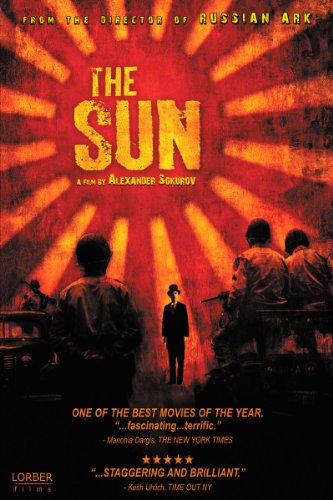
![Father and Son [DVD]](https://m.media-amazon.com/images/I/51ANGMQ75TL.jpg)

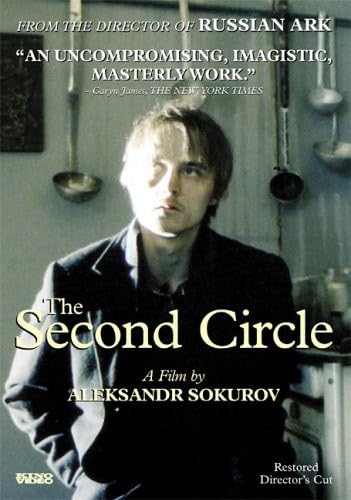
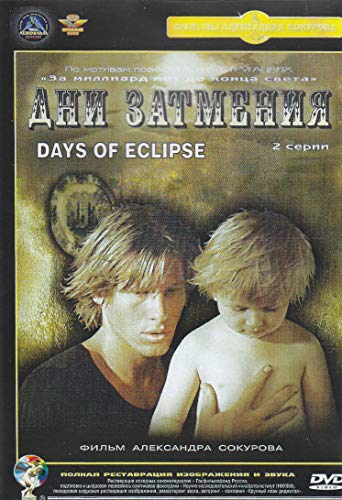
![Sokurov Early Masterworks [Blu-ray]](https://m.media-amazon.com/images/I/515g5At5O7L.jpg)
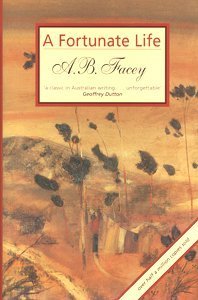
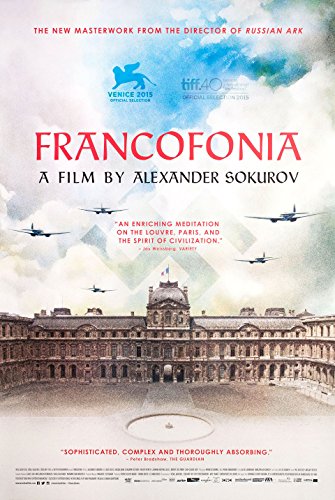
![Alexandra (2007) ( Aleksandra ) [ NON-USA FORMAT, PAL, Reg.2 Import - United Kingdom ]](https://m.media-amazon.com/images/I/51Ai7NuF1+L.jpg)
![Alexander Sokurov Save and Protect / Spasi i sokhrani / Спаси и сохрани Russian Drama Movie [Language: Russian; Subtitles: English] DVD NTSC ALL REGIONS](https://m.media-amazon.com/images/I/51QCKqptXsL.jpg)
![Dolorosa Indiferencia (Sokurov) [Import espagnol]](https://m.media-amazon.com/images/I/51yPp2yLZ7L.jpg)
![The Lonely Voice of Man / Odinokiy golos cheloveka / Одинокий голос человека Aleksandr Sokurov Russian Drama Movie [Language: Russian; Subtitles: English] DVD NTSC ALL REGIONS](https://m.media-amazon.com/images/I/51KKRqnuzhL.jpg)